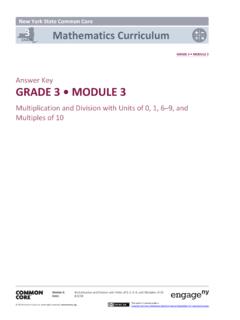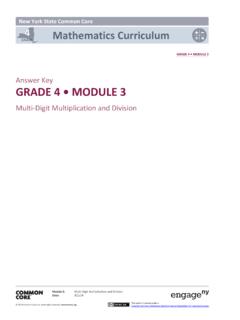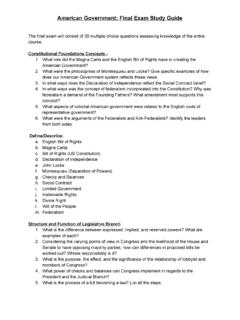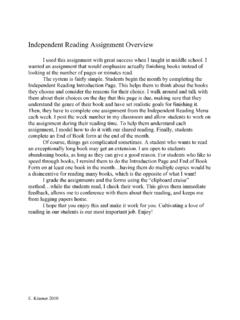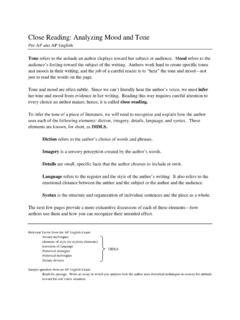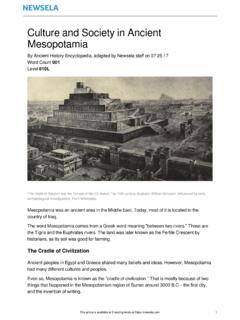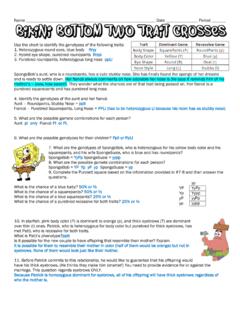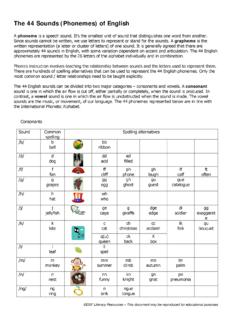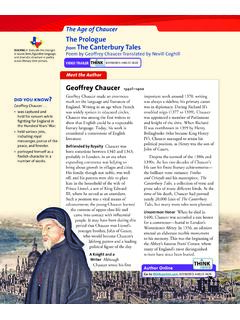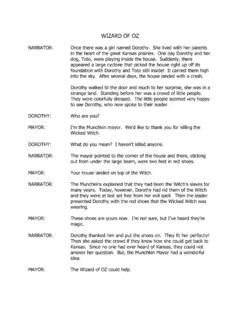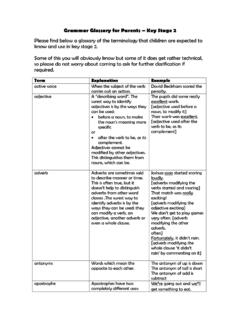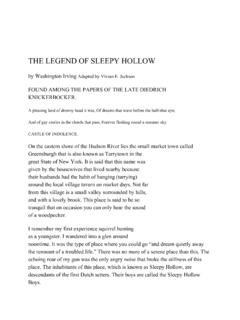Transcription of A NEW VERSE TRANSLATION
1 ALSO BY SEAMUS HEANEY POETRY ^^ ^^ ^^^ ^^ Death of a Naturalist IS E ^^\ Jk# II | E Door into the Dark %J E ^^ WW \^ L I Wintering Out North Field Work A NEW VERSE TRANSLATION Poems 1965-1975 Sweeney Astray: A Version from the Irish Station Island The Haw Lantern SEAMUS HEANEY Selected Poems 1966-1987 Seeing Things Sweeney's Flight (with photographs by Rachel Giese) The Spirit Level Opened Ground.
2 Selected Poems 1966-1996 CRITICISM Preoccupations: Selected Prose 1968-1978 The Government of the Tongue The Redress of Poetry PLAYS The Cure at Troy: A Version of Sophocles' Philoctetes W. W. NORTON & COMPANY New York London Copyright 2000 by Seamus Heaney ^ memQry 0f Ted HugkeS All rights reserved
3 U J Printed in the United States of America Designed by Cynthia Krupat First bilingual edition 2000 published by arrangement with Farrar, Straus and Giroux First published as a Norton paperback 2001 Library of Congress Cataloging-in-Publication Data Beowulf. English & English (Old English) Beowulf I [translated by] Seamus Heaney. 1st ed.
4 P. cm. Text in English and Old English. 1. Heroes Scandinavia Poetry. 2. Epic poetry, English (Old). 3. Monsters Poetry. 4. Dragons Poetry. I. Heaney, Seamus. 1999 829^.3 dC2i 99-23209 ISBN 0-393-32097-9 pbk. W. W. Norton ir Company, Inc. 500 Fifth Avenue, New York, 10110 W. W. Norton ir Company Ltd. castle House, 75/76 Wells Street, London W1T3QT 0 The Old English text of the poem is based on Beowulf, with the Finnesburg Fragment, edited by C.
5 L. Wrenn and W. F. Bolton (University of Exeter Press, 1988), and is printed here by kind permission ofW. F. Bolton and the University of Exeter Press. Contents Introduction page ix A Note on Names by Alfred David page xxxi BEOWULF page 2 Family Trees page 217 Acknowledgements page 219 Introduction And now this is 'an inheritance' Upright, rudimentary, unshiftably planked In the long ago, yet willable forward Again and again and again. BEOWULF: THE POEM The poem called Beowulf was composed sometime between the middle of the seventh and the end of the tenth century of the first millennium, in the language that is to-day called Anglo-Saxon or Old English.
6 It is a heroic narrative, more than three thousand lines long, concerning the deeds of a Scandinavian prince, also called Beowulf, and it stands as one of the foundation works of poetry in English. The fact that the English language has changed so much in the last thousand years means, however, that the poem is now generally read in TRANSLATION and mostly in English courses at schools and universities. This has contributed to the impression that it was written (as Osip Mandelstam said of The Divine Comedy) "on official paper," which is unfortunate, since what we are dealing with is a work of the greatest imaginative vitality, a masterpiece where the structuring of the tale is as elab-orate as the beautiful contrivances of its language.
7 Its narrative elements may belong to a previous age but as a work of art it lives in its own continuous present, equal to our knowledge of reality in the present time. The poem was written in England but the events it describes are set in Scandinavia, in a "once upon a time" that is partly his-torical. Its hero, Beowulf, is the biggest presence among the war-riors in the land of the Geats, a territory situated in what is now southern Sweden, and early in the poem Beowulf crosses the sea to the land of the Danes in order to clear their country of a man-eating monster called Grendel.
8 From this expedition (which in- extent (if at all) the newly Christian understanding of the world volves him in a second contest with Grendel's mother) he returns which operates in the poet's designing mind displaces him from in triumph and eventually rules for fifty years as king of his his imaginative at-homeness in the world of his poem a pagan homeland. Then a dragon begins to terrorize the countryside and Germanic society governed by a heroic code of honour, one Beowulf must confront it.
9 In a final climactic encounter, he does where the attainment of a name for warrior-prowess among the manage to slay the dragon, but he also meets his own death and living overwhelms any concern about the soul's destiny in the enters the legends of his people as a warrior of high renown. afterlife. We know about the poem more or less by chance because it ex- However, when it comes to considering Beowulf as a work of ists in one manuscript only.
10 This unique copy (now in the British literature, there is one publication that stands out. In 1936, the Library) barely survived a fire in the eighteenth century and was Oxford scholar and teacher Tolkien published an epoch-then transcribed and titled, retranscribed and edited, translated making paper entitled "Beowulf: The Monsters and the Critics" and adapted, interpreted and reinterpreted, until it has become which took for granted the poem's integrity and distinction as a canonical.
